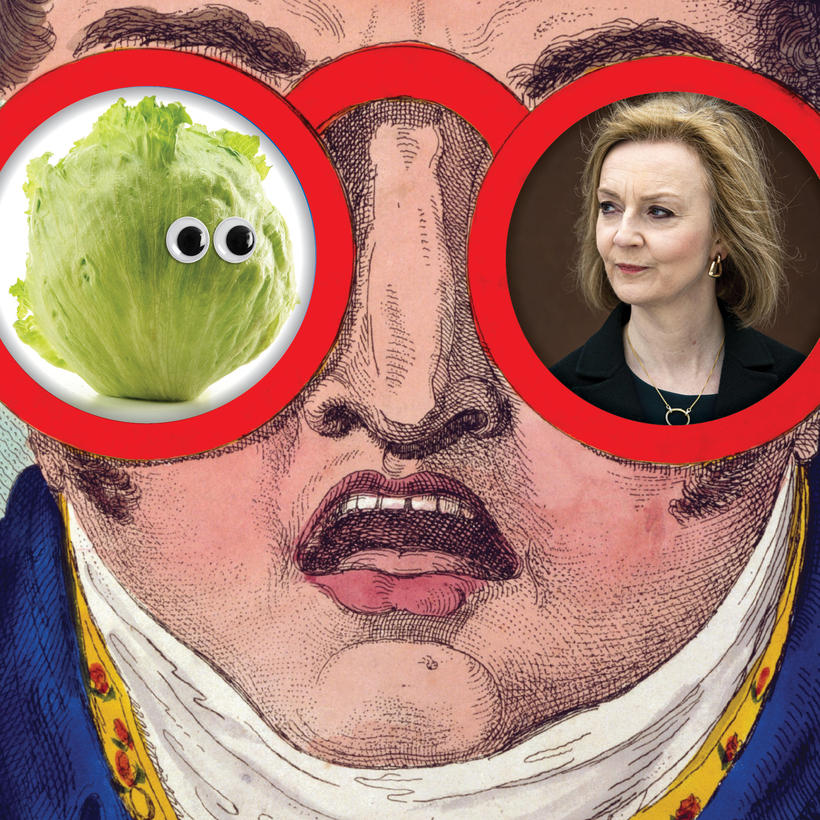Well, the lettuce won. On Thursday, Liz Truss resigned as British prime minister—both a response to overwhelming public criticism and an answer to the question “Exactly how many times can one person punch herself in the face without tapping out?” And when The Daily Star started live-streaming a decaying, room-temperature head of iceberg lettuce last week, to see if it could outlast Truss, it began as satire. Now that lettuce is arguably the most powerful figure in British politics.
In the end, Truss lasted just 45 days in office before announcing her own departure. The only person who even comes close to matching that brevity of tenure is George Canning, a man who became prime minister in 1827 and then promptly died of tuberculosis. And surely now that record is hers to keep—unless she laces the 10 Downing Street doorstep with land mines in a final act of spite.


